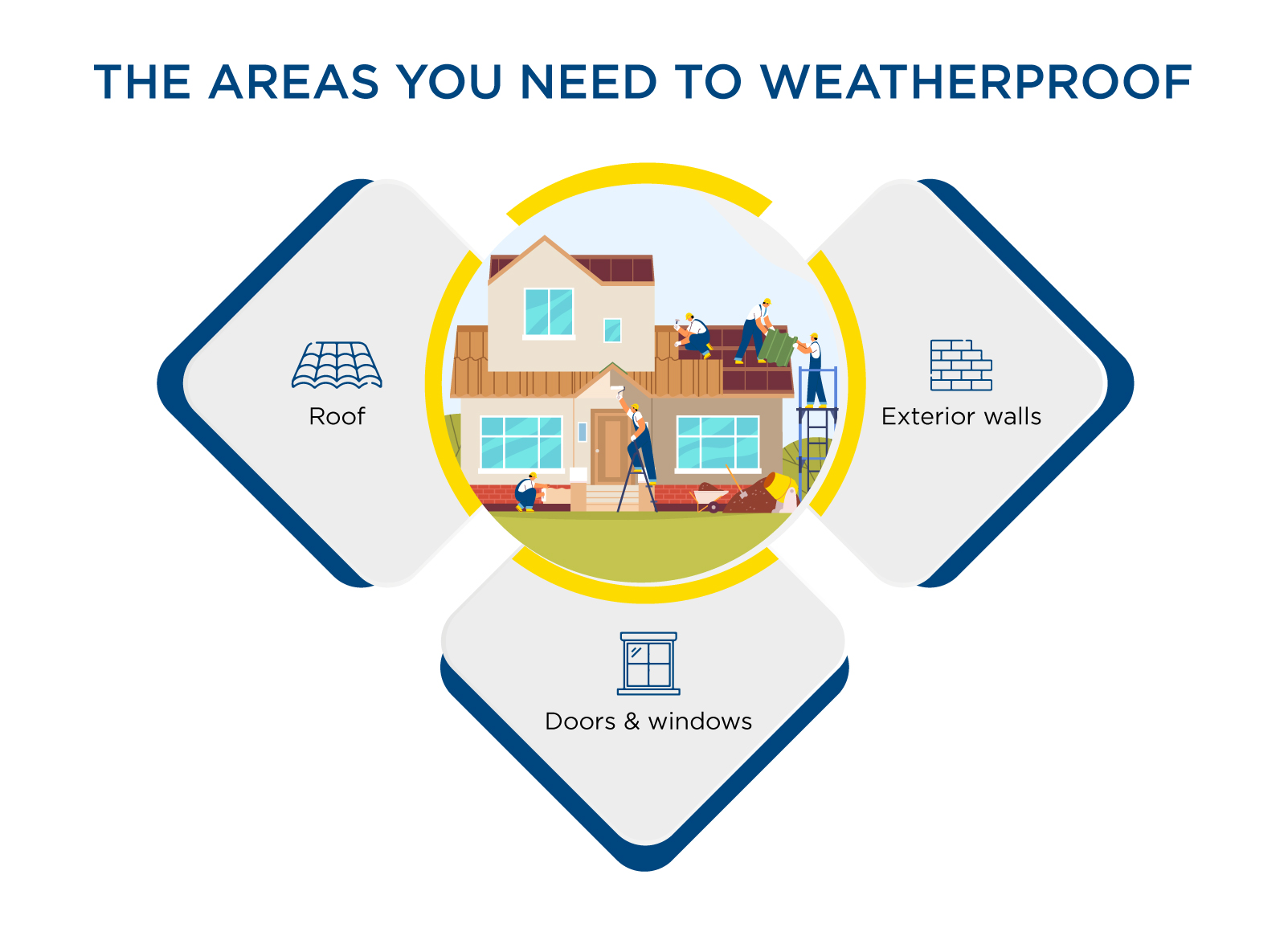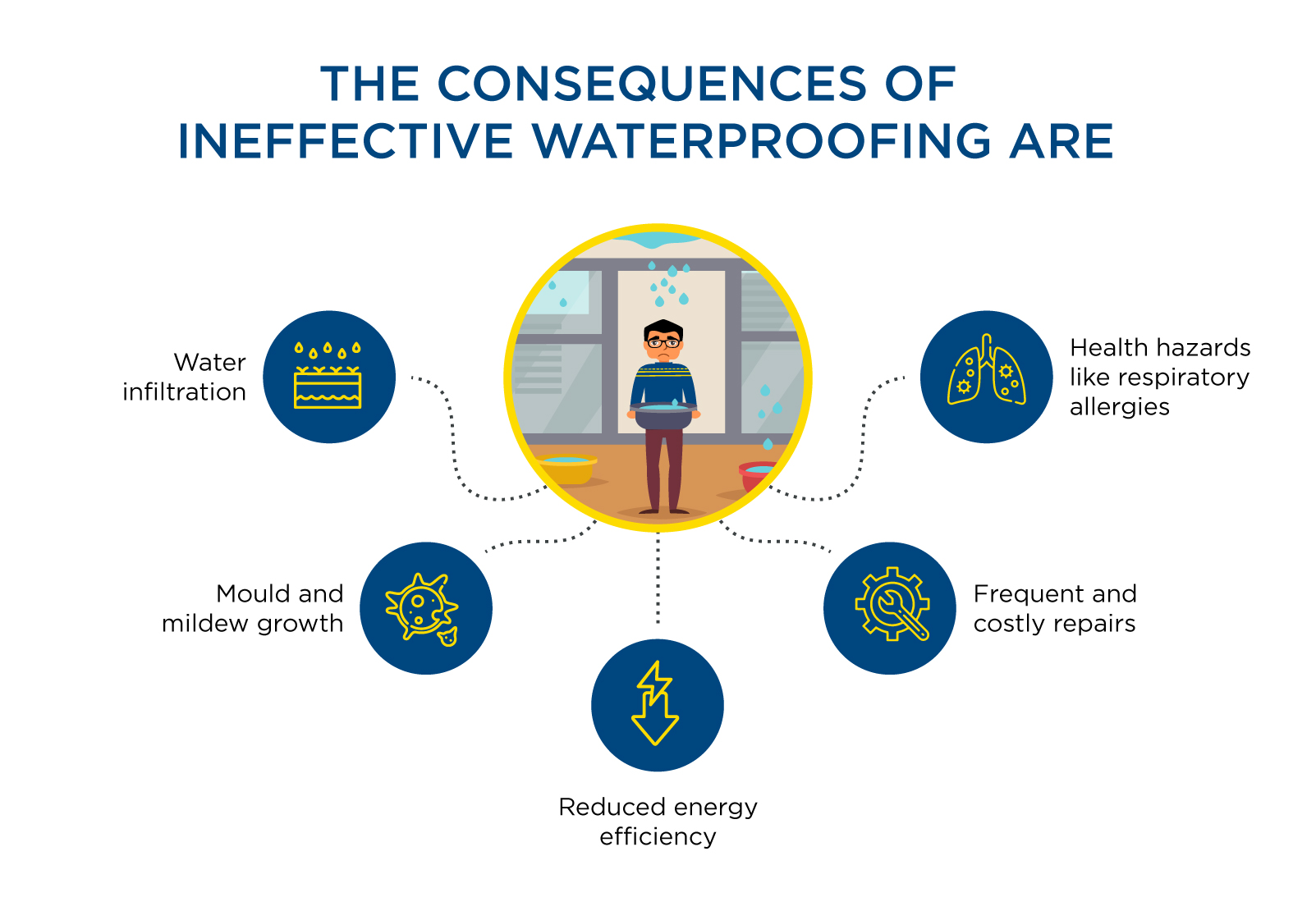
Renovation
Protect your living space: Difference between a weatherproof and waterproof house
Weather and water both affect your home adversely if it is not protected. Without protection, dampness, seepage, cracks, etc., become common. This article tells you when to weatherproof your house and when to waterproof it.
Deciding whether to waterproof or weatherproof the house is a vital choice for homeowners aiming to safeguard their house. Many get confused between the two and often are unable to decide which process would be better for their house's longevity and protection.
While weatherproofing shields against extreme environmental and temperature changes, waterproofing is specifically designed to prevent water damage from rain or leaks.
Let us explore the uses and advantages of the weatherproofing and waterproofing process to help you make an informed decision.
What is weatherproofing?
The weatherproofing process shields your home from the effects of weather conditions like rain, wind, and sunlight. It involves using materials that resist the impact of these elements.
For example, too much heat can cause the expansion of concrete and result in small cracks over time. The primary goal is to protect the home from weather fluctuations and enhance the durability of your home.
Uses -
-
Usually implemented on the exteriors of a house
-
To protect your house against rain, snow, wind, heat, etc.
Advantages -
-
Cost-effective option as it prevents deterioration and frequent repairs
-
Enhances the overall durability of your home
-
Offers protection against UV rays and temperature fluctuations
-
Reduces energy costs by improving insulation
What is waterproofing?
The waterproofing process is more specialised and primarily focused on preventing water penetration. It helps prevent damage like leakage, seepage, and related issues. Waterproofing involves the application of solutions which create a barrier against water infiltration, protecting vulnerable areas from potential water-related damages.
Uses -
-
Usually implemented in the entire house (interiors, exteriors, below-the-ground areas, etc.)
-
Protects against water leakage, seepage, rising water dampness, and related issues
-
Prevents the growth of mould and mildew
Advantages -
-
Provides robust protection against water damage
-
Extends the lifespan of your house
-
Guards against potential health hazards related to moisture
-
Reduces the need for frequent repairs
-
Protects furniture, electrical components, etc., from damage due to water exposure
-
Promotes a healthy indoor environment
Difference between weatherproofing and waterproofing
Waterproofing a house is generally a part of the weatherproofing project. However, they are different on several criteria -
|
Aspect |
Weatherproofing |
Waterproofing |
|
Purpose |
Protects against weather elements like UV rays, rain, snow, etc. |
Prevents water penetration and related damages |
|
Scope |
Application on exterior surfaces, mainly |
Application on both interior and exterior surfaces for effective results |
|
Protection against |
Rain, wind, sunlight, heat, etc., and related damages |
Water infiltration, leakage, seepage, or any other water-related damages |
|
Long-term effects |
Enhances the durability of your house |
Extends the lifespan of your house |
Make an informed choice to protect your home
The choice between weatherproofing and waterproofing depends on your specific needs. Weatherproofing provides general protection against external elements, while waterproofing is crucial for areas prone to water damage. However, India, being a tropical country, is more susceptible to water exposure and water-related damages, and hence, waterproofing is far more popular and effective in India.
When planning to waterproof your house, Dr. Fixit is a go-to expert. Fill out the form given below and reach out to our experts for effective waterproofing solutions and safeguard your house for years to come.
FAQs
#FAQ1 - Can weatherproofing prevent water damage?
Weatherproofing primarily tackles general weather elements, but for strong water resistance and enhanced protection against moisture-related damage, it's essential to waterproof your house. Waterproofing provides a more targeted defence for effective results.
#FAQ2 - Is weatherproofing suitable for all exterior surfaces?
Weatherproofing works for various outdoor surfaces, but its effectiveness depends on the material and location. For personalised advice based on your property, consult a professional who can consider these factors and recommend the most suitable weatherproofing solutions.
If you want to protect ALL the surfaces of your home, waterproofing is a better option.
#FAQ3 - How often should waterproofing be done?
How often you waterproof your house depends on factors like the type of waterproofing material, climate, and the specific area treated. When waterproofing is done with quality materials and with the help of certified contractors, the need for regular waterproofing goes down drastically. If you have waterproofed your house during construction, you won't have to worry about water-related damages for years to come.
Get Professional Waterproofing Solutions Today
Fill The Form below to took free site evaluation by Dr. fixit point safe painting service expert

